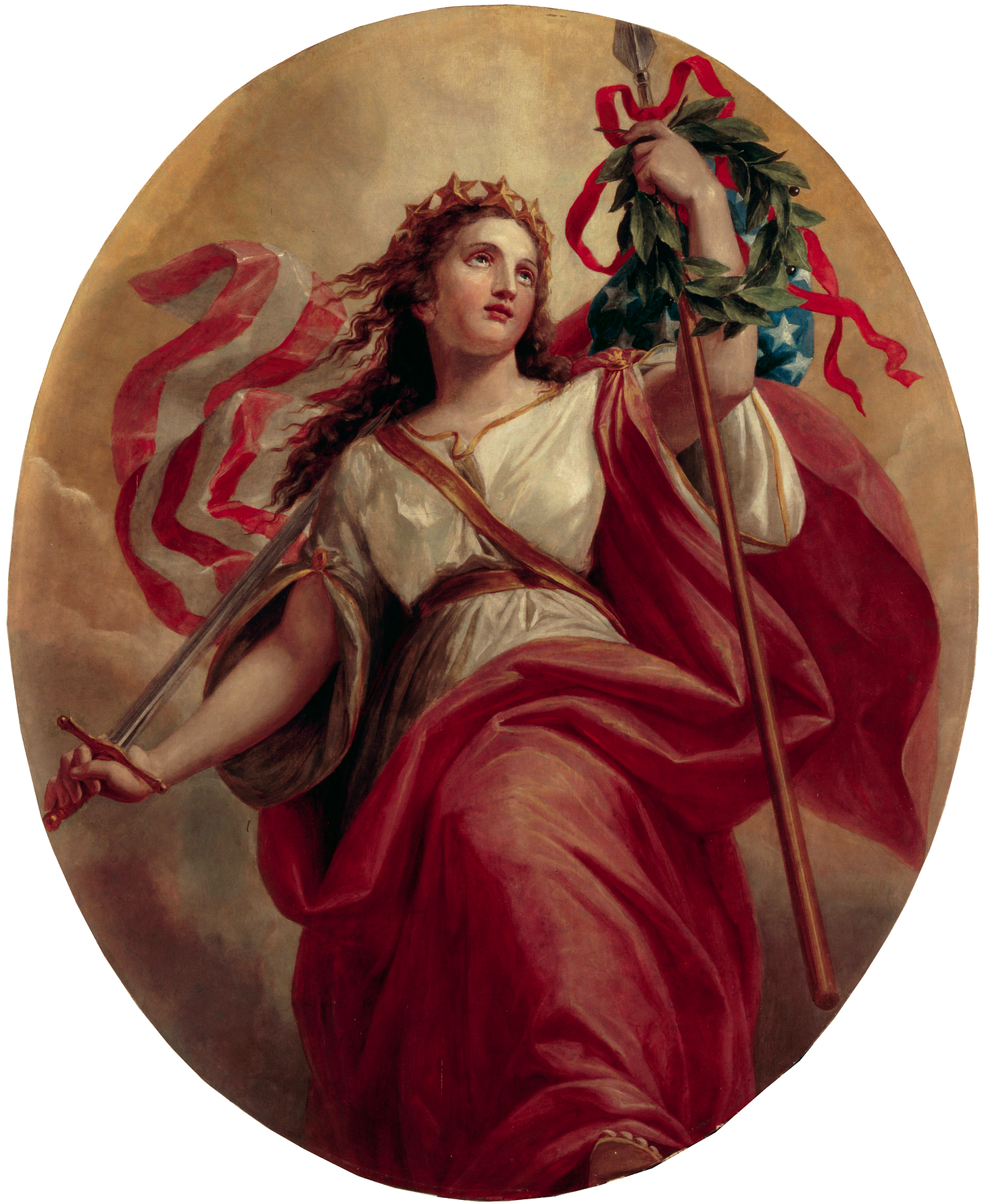
Our deity today can be none other than Libertas, the Roman goddess of liberty. Her Greek counterpart was Eleutheria, but in today’s society, we know her as Lady Liberty.
To the Romans, she was the daughter of Ceres (Demeter) while in Greek myth she was the daughter of Zeus and Hera. She isn’t an active participant in the myths, so there aren’t any stories to highlight.
Libertas was very popular among the slave class, but not so much the aristocracy, which isn’t surprising. She didn’t have much in terms of official temples and cult worship, but she was often printed on coins and had a statue in the Roman forum.
She does, however, have a long history of being invoked by the masses as the personification of freedom.
She was depicted holding a staff and wearing a laurel wreath. In her hands, or on the top of her staff, she held a pileus, which was a special hat that slaves were given when freed.
Libertas was responsible for maintaining individual rights, civic responsibility, the rule of law, and the constitutional government. She was—and is—a symbol for standing against tyranny and oppression, and she was the artistic inspiration for the Statue of Liberty.
However, there is a dark dichotomy to her character.
With the rise of European nationalism, Libertas took on a somewhat barbaric role, promoting ideals of supremacy and exclusion rather than independence and self-determination. Freedom for me, but not for thee.
Her character became contentious. Or perhaps, corrupted. We either want freedom for everyone, or we want the freedom to oppress with impunity. Freedom without civic responsibility and communal respect leads to oppression.
In American history and mythology, Lady Liberty plays a significant role in our civil religion. She is one of the symbols we have used to define ourselves and our place in the world. But it also means her position is contested as freedom has yet to be achieved as a universal construct within our own lands.
On whose side does Lady Liberty stand?
These words either mean something or they don’t:
“Give me your tired, your poor,
Your huddled masses yearning to breathe free,
The wretched refuse of your teeming shore.
Send these, the homeless, tempest-tost to me,
I lift my lamp beside the golden door!"
May she remember our plight in these trying times.



